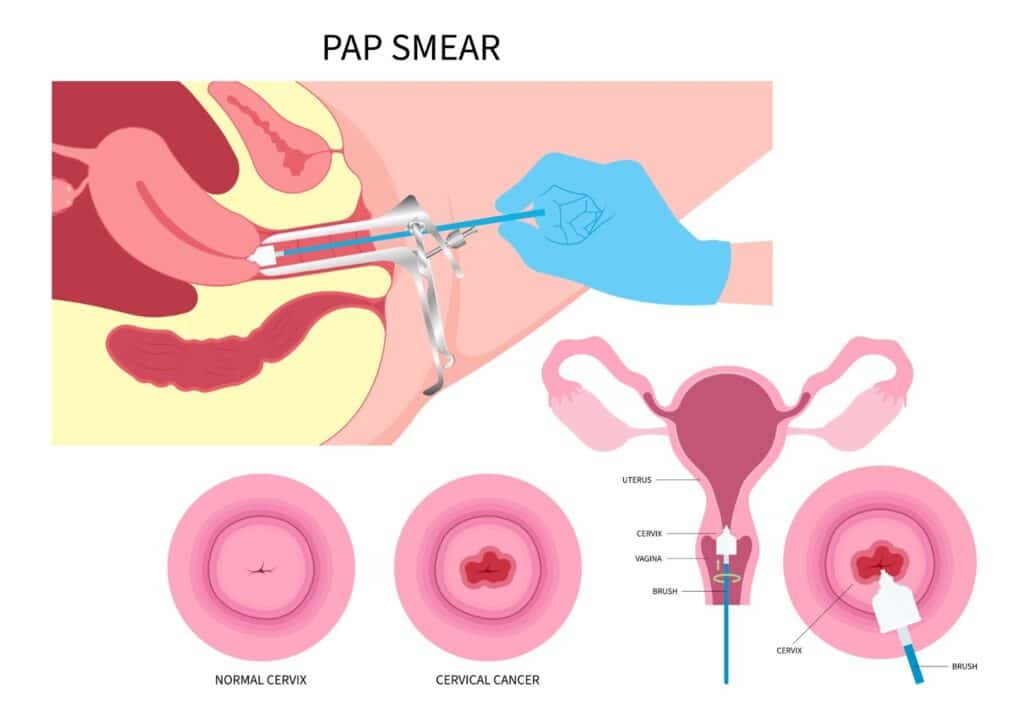Being told you have an ovarian cyst often leaves you with more questions than […]

As a woman, particularly those 25 and older who are sexually active, it is our basic responsibility to take care of our cervical health. But how exactly do we do that, and why is it so important? This article explains everything you need to know about your cervical health and the importance of cervical cancer screening.

The cervix is a small canal or pathway that connects the uterus to the vagina. It is otherwise known as the neck of the uterus. The cervix has many responsibilities in the functioning of females; it has an essential role in the following:
There are numerous things that are good for your cervical health; these are also ways to protect your cervix and maintain good reproductive health.
Ways to keep your cervix healthy include the following:
When these steps are performed together, you can rest assured that your cervix is well-protected. However, it is important to be aware of any changes that may occur in your cervical health and consult with a gynaecologist if you notice any changes, no matter how mild.

One of the abnormalities of the cervix is cervical cancer. It is the 5th most common cancer in women between the ages of 15 and 44 and the 10th most common cancer in women of all ages. Women with early-stage cervical cancer typically do not have any symptoms at all, which makes regular screening all the more important. Cervical cancer symptoms can include:
If you notice any of the symptoms stated above, make an appointment with your gynaecologist for a proper diagnosis and effective treatment.
Pap smears and HPV tests make up cervical cancer screening tests – during these tests, a vaginal speculum is inserted gently into the vaginal canal, and a brush is used to gently collect some cells from the cervix to be sent to the laboratory for further evaluation.
Women between 25-29 years old should go for regular pap smears once every 3 years, and women 30 years old and above should go for HPV tests once every 5 years. This applies as long as one has ever had sex before (even if you are no longer sexually active). Women who have completed their HPV vaccination should also go for regular cervical cancer screening as the vaccination does not provide 100% protection.
Schedule your next cervical cancer screening with your gynaecologist to help maintain your cervical health.

Pap smears/HPV tests and cervical cancer screening are terms often used interchangeably, but there are some differences between the two. The primary purpose of a pap smear is to detect abnormal cells on the cervix, which may indicate the presence of pre-cancerous or cancerous change of the cervical cells, whilst the purpose of an HPV test is to detect the presence of any high-risk HPV subtypes. The most dangerous high-risk HPV subtypes are types 16 and 18, which are known to cause 70% of all cervical cancers; other high-risk HPV subtypes (non-16/18) cause the remaining 30% of all cervical cancers.
Cervical cancer screening is a broader term encompassing the aforementioned methods.
It is a misconception that you do not require pap smears if you are not sexually active – as long as you have had sex once before, you will need to continue with regular cervical cancer screening as HPV infections can persist over a long time and slowly cause pre-cancerous changes (or cancer) of the cervix. It is important to note that cervical cancer is a slow-evolving condition that can develop over the course of years and may not manifest in any symptoms in the interim.

In Singapore, a woman can be discharged from cervical cancer screening at 69 years old if she has had 3 consecutive negative pap smear results prior or 2 consecutive negative HPV tests in the last 10 years (with the latest done within the past 5 years), or 2 consecutive co-testing (i.e. pap smear and HPV test) in the last 10 years (with the latest done within the past 5 years).
However, if you have a history of pre-cancerous changes of the cervix, you will need to continue regular cervical cancer screening for at least 20 years following the diagnosis, and your gynaecologist will advise you on this accordingly.
A pap smear/HPV test result will usually be ready within 1-2 weeks. The results can be interpreted in the following ways:
A co-testing usually involves doing a pap smear and HPV test simultaneously; this can be performed using the same specimen and does not require additional examination time.
Pap smears may feel uncomfortable but are not painful; as long as you are relaxed during the examination, the whole testing process usually takes less than a minute.
Pap smears are generally safe but have potential (minor) risks. Some women may experience discomfort or pain during the procedure, and there might be light spotting/bleeding afterwards. False positives or negatives can occur, leading to the need for follow-up tests or missed abnormalities.
A pap smear/HPV test typically does not affect the menstrual cycle or disrupt the regularity of periods. However, you should aim to schedule your cervical cancer screening at least a week after your period finishes to avoid blood obscuring the accuracy of your cervical cancer screening results.
Cervical cancer screening is an important preventative measure in women’s health – it aims to detect precancerous changes of the cervix in women who typically remain asymptomatic until it is too late. Early detection, in turn, allows for prompt treatment before progression to invasive cancer.
Regular screening is highly effective in reducing the incidence and mortality of cervical cancer. Coupled with appropriate HPV vaccination and timely follow-up of abnormal results, it is anticipated that the global burden of cervical cancer will drop in the coming decades, which is excellent news for the advancement of women’s health.
Being told you have an ovarian cyst often leaves you with more questions than […]
Chronic bloating. Lower back pain. Fatigue that lingers even after rest. These are symptoms […]
Many women live with Polycystic Ovary Syndrome (PCOS) without realising fact from fiction. This […]





Aster Gynaecology © | All Rights Reserved.